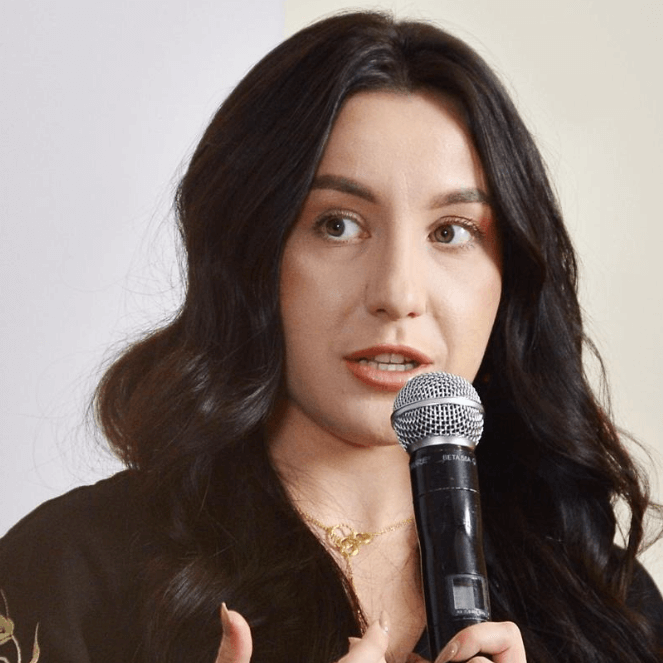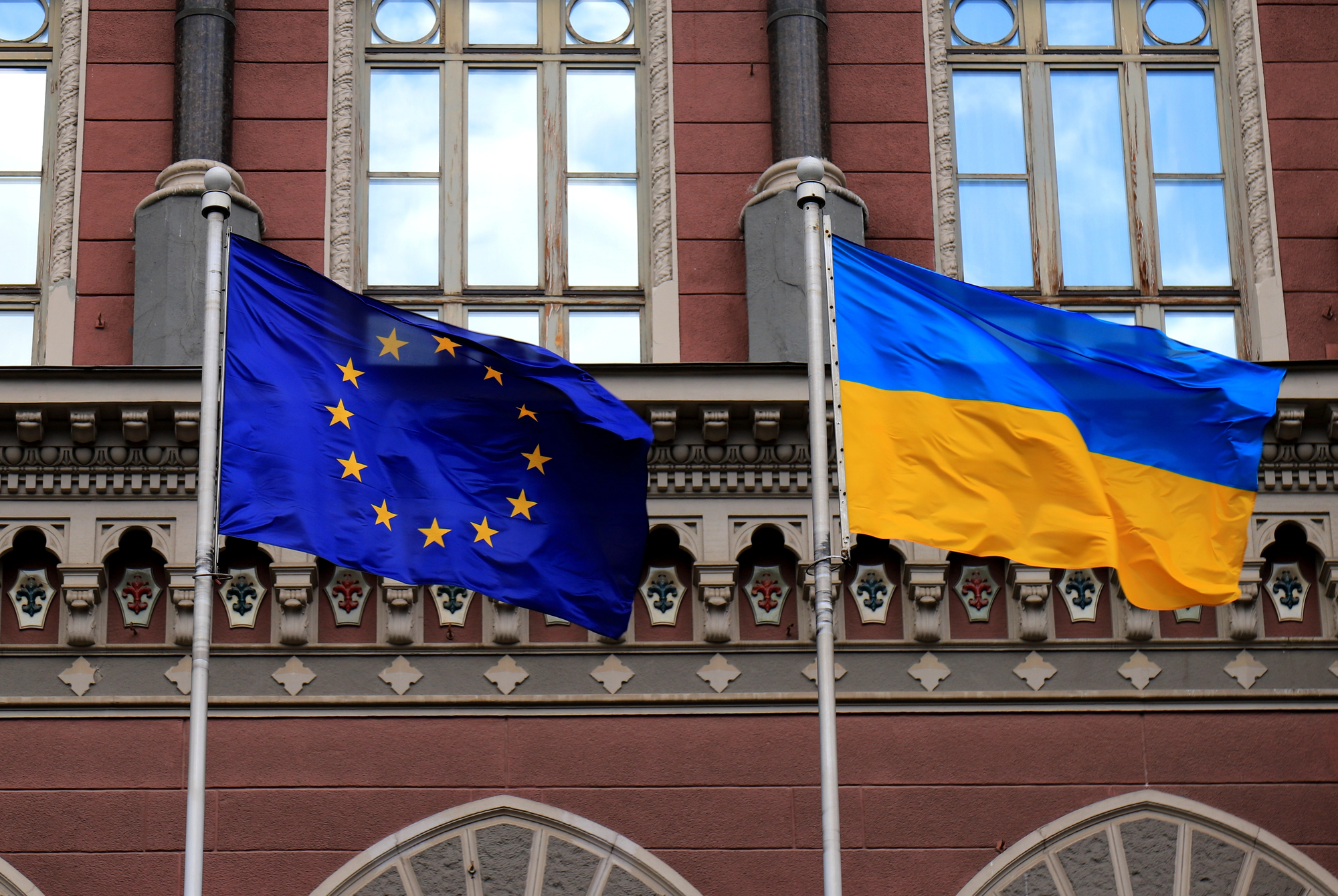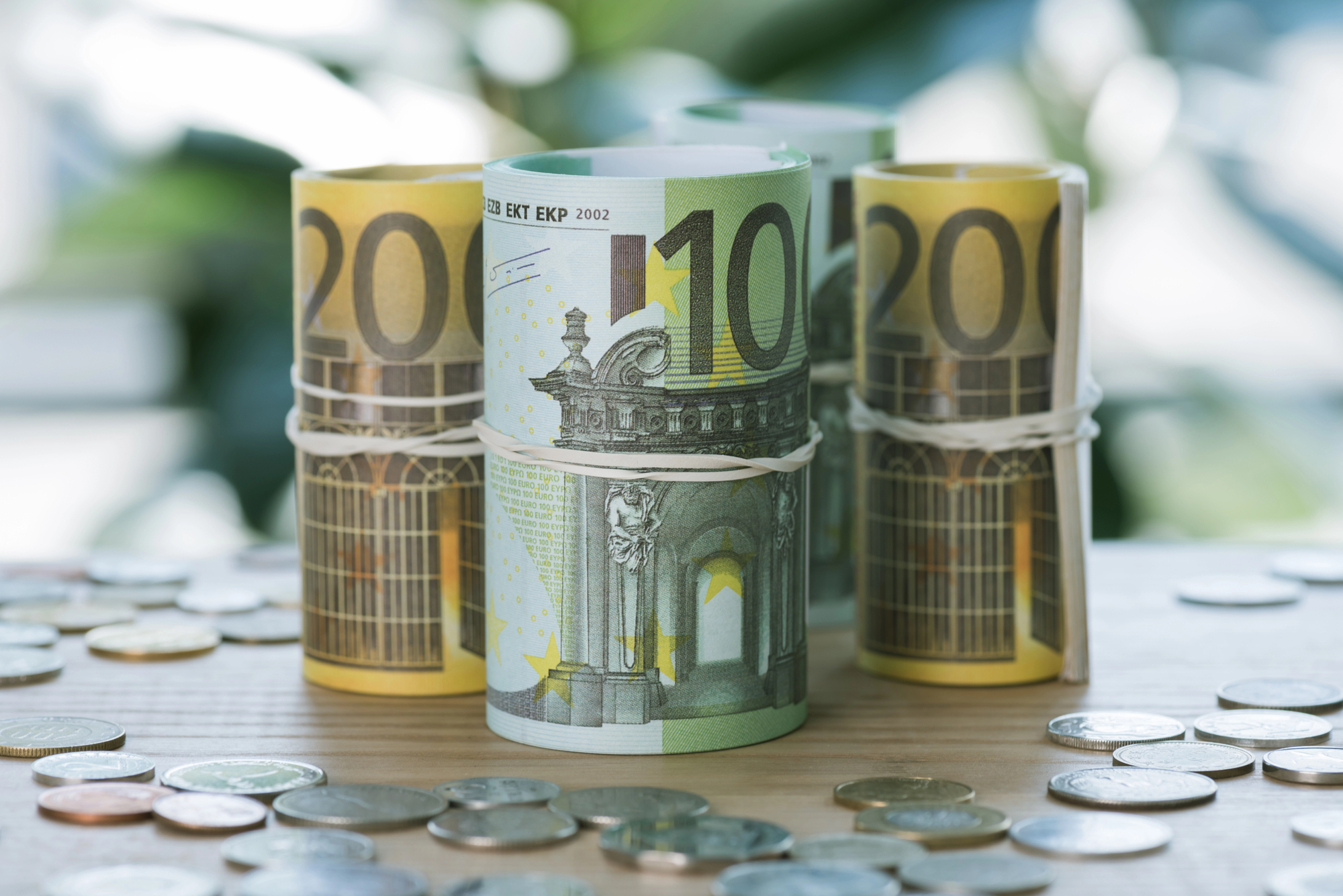There is just one month left before the parliamentary election if the Constitutional court okays the dissolution of the parliament. Election campaigning is getting more intense, and party leaders appear more and more frequently on talk shows. Indeed, everyone is trying to highlight the advantages of their own program of Ukraine’s development. However, the methods for proving one’s truthfulness are not always truthful: politicians more often resort to manipulations, lies, and exaggerations.
In this article, we checked fact-based statements made by Yulia Tymoshenko, Petro Poroshenko, Anatoliy Hrytsenko, Sviatoslav Vakarchuk, Yevheniy Muraev, Oleh Tiahnybok, and Andriy Sadovyi during the live program “Freedom of Speech” on June 10.
Yulia Tymoshenko, leader of the party “All-Ukrainian Association ‘Batkivshchyna’”
Untrue
“When I first came to work as Prime Minister, I introduced childbirth support for the first time. And those were highly substantial amounts of aid: $1,000, $2,000, $3,000. And we paid them on a one-time basis”.
The first time Yulia Tymoshenko became Prime Minister was in 2005.
Childbirth payments existed before her premiership, too. Those were one-time payments amounting to two subsistence minimums (below, SMs). In 2005, the subsistence minimum was 423 UAH. Therefore, the amount to be paid after childbirth was 846 UAH, or $165 (according to the official exchange rate of 5.12 UAH/$).
After the introduction of the changes, the size of childbirth payments went up to 22.6 subsistence minimums (376 UAH in 2005) for children under 6 years of age. The payment schedule was as follows:
- first, a one-time payment amounting to 9 SMs, or 3,384 UAH ($660) was made;
- the remaining amount – 13.6 SMs, or 5,113.6 UAH ($998.75) – was paid within 12 months.
That is, under Tymoshenko’s premiership the size of childbirth aid was indeed considerably increased, but it never amounted to $1-3 thousand. It should also be noted that the payments were increased in the execution of the program of newly elected President Yushchenko.
Yulia Tymoshenko may have meant the period of her second premiership when the size of the childbirth payment was further increased. The second period of Tymoshenko’s premiership lasted between December 2007 and March 2010.
From December 31, 2007, the sizes of childbirth payments were as follows:
- 12,240 hryvnias, for the first child;
- 25,000 hryvnias, for the second child;
- 50,000 hryvnias, for the third child.
The official hryvnia to U.S. dollar exchange rate in 2008 was 5.26 UAH/$. The one-time part of the aid to be paid after the birth of the first child was 4,800 hryvnias ($912); of the second child, 4,840 hryvnias ($920); of the third and subsequent children, 5,000 hryvnias ($950).
The remaining amount for the first child was paid within the following next 12 months (620 UAH, or $117 per month); for the second child, within 24 months (840 UAH, or $160 per month); for the third and subsequent children, within 36 months (1,250 UAH, or $237 per month), in equal shares.
After 2008, however, the hryvnia was devalued, and in 2009 the exchange rate already changed to 7.79 UAH/$. Yet the size of childbirth payments (in hryvnias) did not change; accordingly, it decreased in dollars. The sizes of the payments never increased until the end of Tymoshenko’s second premiership.
Does it make any sense at all to convert these amounts into dollars? Partially so, because many baby products are imported and their prices went up after the devaluation of the hryvnia.
Thus, what Tymoshenko says is not true, because during both her premierships, the size of one-time payments was never above $1,000. Only the summary payment reached and sometimes exceeded that level.
No verdict
“In September, the amount of our external debt to be repaid will peak at nearly 2 billion dollars. That is about 50 billion hryvnias – 54 – that’s an awful amount of money”.
On the one hand, in September Ukraine will indeed have to pay $1.9 billion – 58.5 billion UAH – to the IMF, according to data from the Ministry of Finance. That is really the largest external debt amount that Ukraine will have to pay in the period between Tymoshenko’s statement in question and the end of 2019.
On the other hand, Tymoshenko does not say that the country already reimbursed the year’s biggest portion of state debt – back in May, when we paid 77.8 billion UAH, or $2.95 billion (with the official exchange rate being 26.37 UAH/$) to the creditors.
Since the speaker does not specify the interval during which the payments are largest, we leave this quotation without a verdict.
True
“Our healthcare system is systematically underfunded throughout the year, by 50%. We don’t have a sufficient level of medications in the hospitals”.
According to MoH data, the purchase of medications at the expense of the state is only funded at 45% of the required amount. VoxCheck calculations show that last year’s level of funding of drugs for adult cancer patients was 28%; medications for children, 67%; for cardiovascular patients, 30%. That is, at least these areas are indeed severlyunderfunded (in 2017-2019, equal amounts were allocated for the purchase of medications, 5.9 billion UAH annually).
At the same time, the MoH is trying to find a solution to this problem. Thus, in 2017, it launched the program “Affordable Medications,” which allows cardiovascular patients to obtain medicines from a specified list for free or at a considerable discount. This program is aimed at preventing acute conditions. Also, the Ministry began to redirect funds from other programs to the treatment of cancer patients. As a result of the redirection of funds from other programs, in 2019, the funding of the program of cancer treatment in adults is expected to increase by 10%. Besides, the international organizations which have been in charge of the purchase of medicines in the past few years managed to save a considerable amount of the funds (up to 40%), and so it is now possible to buy more drugs.
So, the areas of cancer and cardiovascular therapy are really underfunded. However,it is also necessary to take into account the following facts:
- the main underlying reason is the chronic shortage of funds allocated in Ukraine’s budget for the entire healthcare system (and not the medical reform);
- the MoH is trying to find a solution to the problem of shortage of funds through redirection of money from other programs where the funds have been saved;
- the medical reform is aimed in particular at increasing the efficiency of spending of available resources, and hence, it is conducive to the improvement of financial capacity of medicine.
Untrue
“The laws of Ukraine put the average minimum subsistence level at 4,117 UAH, while pensioners receive a little over 1,000 and less than 2,000 – there are 71% of such pensioners in the country”.
The minimum pension in Ukraine corresponds to the minimum subsistence level for persons who have been incapacitated. The 2019 level is: from January 1, 2019, 1,497 UAH; from July 1, 1,564 UAH; from December 1, 1,638 UAH.
According to the 2018 report by the Pension Fund of Ukraine, for 0.7% of the pensioners the size of their pension is less than 1,400 UAH; for 18.3% of the pensioners, it ranges between 1,401 and 1,500 UAH; for 33%, between 1,501 and 2,000 UAH. Thus, pensions under 2,000 UAH are received by 52% of the pensioners.
No verdict
“According to calculations of some international structures studying labor resources, we have a situation when each minute two people leave Ukraine to live in another country”.
There really are such calculations; however, they come not from an international structure but from this resource: Ukrainianpeopleleaks.com.
The site specifies neither the methodology nor the organization making these calculations. The only thing clear is that the estimatesare based on a statement made by Minister of Foreign Affairs Pavlo Klimkin, who said that more than 100,000 people leave Ukraine each month. Since it is neither possible to verify the data from Klimkin’s statement in open sources nor clear whether the minister meant temporary departure or emigration for good, we leave this quotation without a verdict.
Untrue
“As soon as the President was inaugurated, all these people [Foreign Affairs and Defense Ministers, the Prosecutor General – editor’s note] were to submit letters of resignation and the President was to propose new candidates for nomination. And the Parliament is obliged by the Constitution to vote for that”.
The legislation does not oblige the Prosecutor General or the Defense and Foreign Affairs Ministers to resign when a new President is sworn in. Nor is a newly elected President required to appoint new people to those positions.
Article 85 of the Constitution lists appointment and dismissal of the Defense and Foreign Affairs Ministers (paragraph 12) and of the Prosecutor General (paragraph 25) among the powers of the Verkhovna Rada (following a submission from the President); however, the Constitution does not require from the MPs to vote for the President’s proposal.
True
“Already today, the World Bank said that we are 50 years behind Poland. And that if we go on working at the same rate as today, we will need 50 years to catch up with Poland. I have this question: Where will Poland be in 50 years from now?”
The World Bank really said that if the current rate of development persists, Ukraine will need more than 50 years to reach the level of incomes of today’s Poland.
Petro Poroshenko, leader of the party “European Solidarity”
Manipulation
“We kept moving step by step from 153rd to 71st place in the Doing Business ranking”.
During Poroshenko’s presidency, Ukraine rose in the Doing Business ranking to 71st place not from 153rd but from 112th place. The country went up from 152nd to 112th place (+40 positions) in 2011-2013 (these are the 2012–2014 rankings), whereas during the presidency of Petro Poroshenko (2015-2019 rankings) Ukraine rose from 112th to 71st place (+41 positions).
Exaggeration
“Today, the share of the European Union in the commodity turnover with Ukraine is more than 43% of our exports”.
The share of export of commodities to EU countries in the first 4 months of 2019 was 38.1%. In 2018, the share of commodities exported to the EU amounted to 37.6%.
Exaggeration
“The latest sociological surveys show that the level of support of our integration in the EU, and likewise, the level of support of our integration in NATO is unprecedented: today about 70% support integration in the EU and more than 54% support our integration in NATO”.
Among the total population, the levels of support for the EU and for NATO are much lower thanthe President says; therefore, our verdict is “exaggeration” (since he is talking about the entire people). The respective figures will be truthful if only those respondents who would take part in the referendum and who have made up their mind are taken into account.
Thus, according to a Rating group survey that was conducted from April 30 to May 10, 2019, 48.9% of the respondents were ready to vote for accession to NATO and 57% for joining the EU.
| Sociological service: | Rating (April 30 – May 10, 2019, among the total population) | Rating (April 30 – May 10, 2019, among those who would vote and made up their minds) |
| NATO | 48.9% | 67.8% |
| EU | 57% | 74.7% |
Manipulation
“Some try to frighten us by saying that if we join NATO, our military spending will increase. At present, military spending accounts for about 6% of GDP; in the agreement with NATO, it’s 2%. On the contrary, it [military spending – editor’s note] will be reduced”.
Regardless of joining NATO, the current law on national security provides that the funding of the security and defense sector must not be less than5% of the planned GDP and that defense funding must account for no less than 3%. Therefore, without changing or violating the laws, it will be impossible to reduce spending on security and defense. This year, Ukraine’s spending on the defense and security sector amounts to 5.37% of GDP, in particular on the defense sector alone, to 2.73%.
There is a declaration of NATO member states according to which they commit themselves to spend no less than 2% of GDP on defense, but most of the states fail to comply with that commitment. In 2018, only the United States and Great Britain spent more than 2% of their GDP on defense. Moreover, the declaration is limited in time – it expires in 2024.
According to the NATO enlargement principles, an unresolved conflict, especially in the absence of a stable truce, as in the case of Ukraine, is an obstacle to accession, since the alliance undertakes to guarantee the security of its members.
Poroshenko resorts to manipulation since there is no connection between the NATO member states’ agreement on 2% and reduction of defense spending in case Ukraine joints the alliance.
Sviatoslav Vakarchuk, leader of the party “Holos”
Manipulation
“Just take a look at the level of confidence in the parliament in Ukraine. It is miserable altogether – 3%, as far as I remember”.
According to the latest survey conducted by the Razumkov Center on March 20-26, 2019, the share of respondents having complete trust in the VRU is even smaller: 1.3%. However, one should also look at those whose answer was “mostly trust.” In that survey, their share amounted to 11.1%. Therefore, the level of confidence in the VRU is 12.4%.
Yevheniy Muraev, leader of the party “Opposition Bloc”
Untrue
“We still have no official diplomacy [with Russia – editor’s note]: we have no representative office in the Russian Federation; the Russian Federation has no representative office in Ukraine”.
The Embassies of Russia in Ukraine and of Ukraine in Russia are working as usual. Ukraine’s consulates operate in Rostov-on-Don, St. Petersburg, Yekaterinburg and Novosibirsk. Russia’s consulates operate in Kharkiv, Odesa, Lviv, and Chernihiv. After the beginning of the aggression, both sides lowered the level of diplomatic relations to temporary chargé d’affaires, recalling their ambassadors.
Manipulation
“There are 3 million Ukrainians working in the territory of the Russian Federation”.
We found no accurate data on the number of Ukrainian labor migrants, but we estimated data on Ukrainian labor migrants in general. The latest data was provided by the IMF in its January Country Report (P. 4). According to their estimates, there are a total of 2 to 3 million Ukrainians working outside the country. According to estimates of the Center for Economic Strategy (p. 16), the number of labor migrants is as high as 4 million, with about 2.6 – 2.7 million persons simultaneously staying abroad. Similar conclusions were also reached by a professor at Kyiv School of Economics, senior economist Hanna Vakhitova. According to her estimates, there are 2.5 million citizens – one out of ten Ukrainian adults – working abroad.
Since there are a total of about 3 million Ukrainians working abroad, it is impossible that all of them are labor migrants in Russia. In particular, Poland estimates the number of labor migrants from Ukraine at 520 – 920 thousand persons.
In 4 years, mass exchanges of prisoners took place on three occasions: in December 2014, August 2015, and most recently, in December 2017.
Volodymyr Groisman, leader of the party “Ukrainian Strategy”
Manipulation
“When I came to work, the minimum salary in dollars was only $50. Today, it’s $150”.
The speaker manipulates the audience when he makes comparisons between minimum social standards in dollars. It will be correct to make comparisons in real terms, i.e., in hryvnias, with adjustments for consumer price index. Then one will see how the purchasing capacity of the minimum salary has changed.
Volodymyr Groisman became Prime Minister in April 2016. In 2016 the minimum salary was:
- from January 1, 1,378 UAH,
- from May 1, 1,450 UAH,
- from December 1, 1,600 UAH.
In 2019, the minimum salary is 4,173 UAH.
During these three years, inflation amounted to 40.3% (12.4% in 2016, 13.7% in 2017, and 9.8% in 2018).
Therefore, the 2019 minimum salary expressed in 2016 prices is 2,974.34 UAH. Thus, in real terms, it increased 2.15 times (not 3 times, as claimed by Groisman).
The Government first raised teachers’ salary by 50%. As a result, their average salary increased by 55%: from 3,769 UAH in 2016 to 5,857 UAH in 2017.
From January 1, 2018, the salaries were to go up by a further 25%. As a result, the average salary in the sphere of education rose to 7,041 UAH, or by 20% compared to the previous year.
Thus, the total salary increase amounted to more than 86%.
Anatoliy Hrytsenko, leader of the party “Civil Position”
Untrue
“In the period after the Revolution of Dignity, during those years, the population of our country has decreased by a million people. These are not the ones that left; it’s a balance between those who die – and that number keeps increasing – and those who are born, whose number keeps decreasing. Now, last year, the number of newborn babies decreased by 130,000 compared to the previous year; this year, there will be a further decrease”.
The natural increase, or rather, in this case, a decrease inthe population between 2014 and 2018 was 746,100 persons, not one million.
The birth rate has really been declining in Ukraine since 2013 (there was a slow increase since 2002, preceded by a previous decrease lasting for more than 10 years), but the mortality rate has also been diminishing since 2014.
In 2017, about 364,000 babies were born; and in 2018, 336,000 babies; thus, the decrease amounted to 28,000, not to 130,000.
Untrue
“Just look at the current parliament, which is hated by one and all. Do you know that it’s truly new? It has more than 70% of people who have never been MPs before”.
56.5% of the MPs that were elected at the parliamentary election in 2014 had never been People’s Deputies before. Yet this does not mean that those “new faces” had never occupied high administrative positions or never worked at the Verkhovna Rada, for example as aides to MPs.
Manipulation
“Just 2% of our garbage is processed. Thirty thousand illegal dump sites”.
According to data from the Ministry of Regional Development, 6.2% of the household waste was utilized in 2018, in particular, 2% was incinerated, and 4.2% of the household waste was delivered to centers for collection of recyclable materials and to waste recycling plants.
Also, 26,600 illegal dump sites are discovered in Ukraine annually; but 26,000 unauthorized sites were liquidated in 2018.
Oleh Tiahnybok, leader of the party “All-Ukrainian Association ‘Svoboda’”
True
“During the time of Ukraine’s independence – it’s not our statistics, it’s the Academy of Sciences saying so – $154 billion was transferred from Ukraine and hidden in offshores”.
There are many estimates of the total amount of funds transferred from Ukraine. For example, according to data from the Ukrainian Institute of the Future, 250 – 300 billion UAH is transferred from Ukraine annually; Tax Justice Network reports that $166.8 billion was transferred abroad in 1994 – 2010; the Institute of Economics and Forecasting of the National Academy of Sciences of Ukraine insists on $148 billion between 1991 and 2017.
Manipulation
“As far as I recall, it was announced last week that the external debt of Ukraine had increased by another one billion plus an extra something to over $79 billion”.
According to data from the Ministry of Finance, the state and state guaranteed debt, expressed in dollars, grew between the end of March and the end of April (latest data available) by $1 billion. The amount rose due to an increase in the internal rather than external debt.
At the same time, in view of strengthening of the hryvnia, the total amount of debt, expressed in hryvnias, took a different turn, decreasing by 20 billion UAH.
Andriy Sadovyi, leader of the party “Samopomich”
Exaggeration
“The movement ‘Chesno’ presented its fairness ranking. And so, the 25 top deputies – most of them are Samopomich MPs”.
The 25 most honest MPs include 12 members of the Samopomich faction. The others include three Batkivshchyna members, two members of the Bloc of Petro Poroshenko “Solidarity” and 8 non-affiliated MPs. The ranking of the most unfair MPs is topped by three MPs from Vidrodzhennia, three from The People’s Will, three from BPP “Solidarity” and one Opposition Bloc member.
Attention
The authors do not work for, consult to, own shares in or receive funding from any company or organization that would benefit from this article, and have no relevant affiliations






